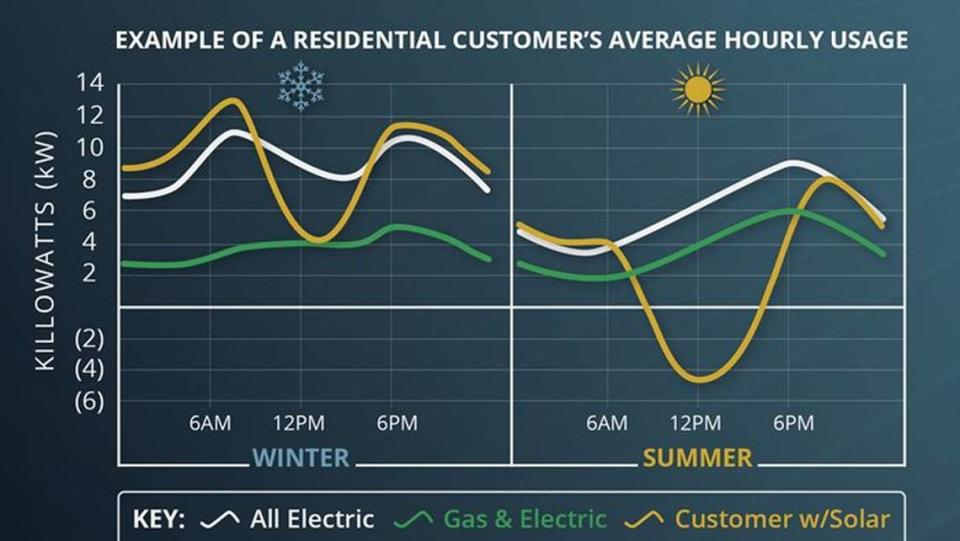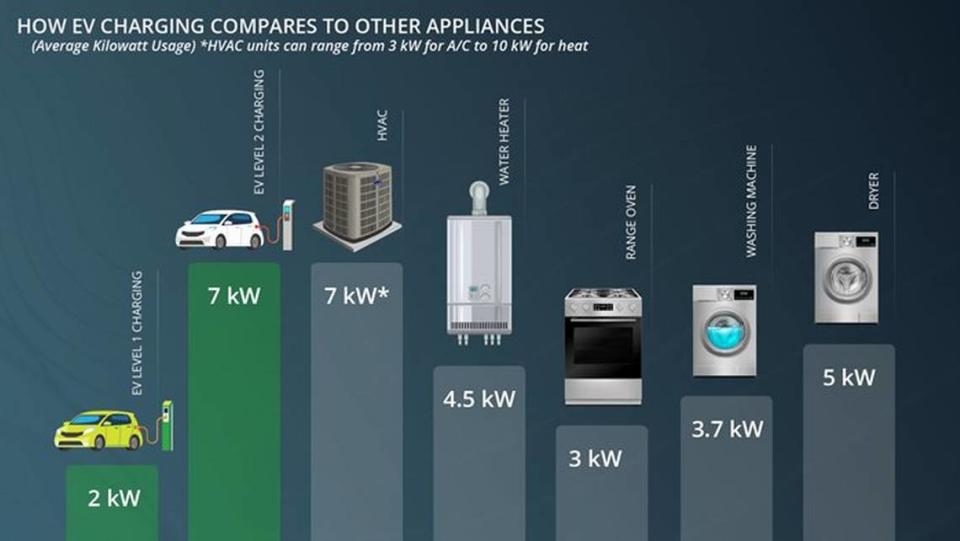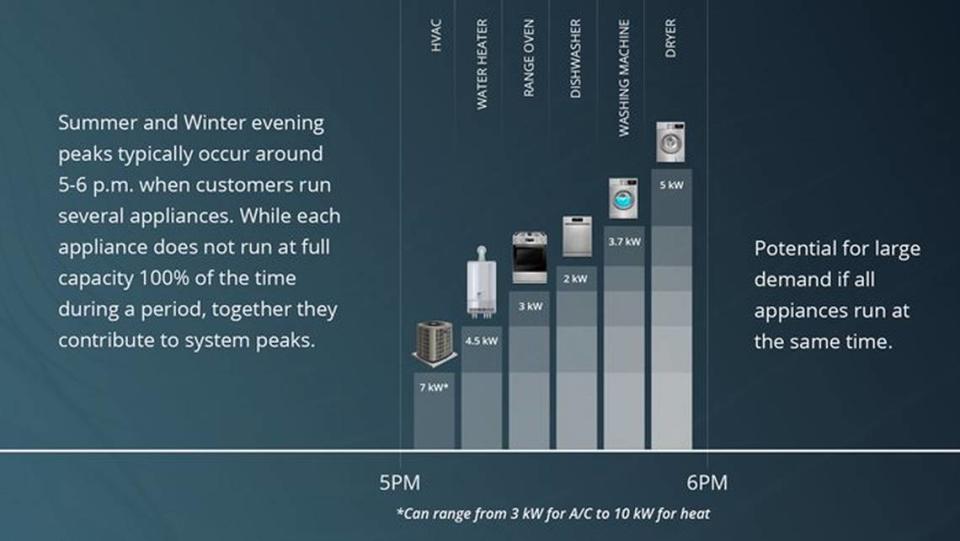Need to do laundry during a peak energy time? It’s going to cost more in Tri-Cities
Starting in October, Benton PUD residential customers will see a change to how they are charged by the utility to encourage them to plan some of their electricity use outside hours of peak demand.
The change includes a reduction of residential rates, plus a surcharge based on their hour with the highest use of electricity during certain weekday times.
“The change will charge customers that have higher usage during peak hours a premium and provide an opportunity for customers to lower their bill by decreasing usage during peak hours,” said a fact sheet for Benton PUD, based in Kennewick.
The bill for most residential customers is expected to change by $5 or less a month, which could be either an increase or a decrease. The change will show up on bills received in November based on October electricity use.
“This is not a rate increase,” Benton PUD information said. “This is a change in the rate structure and is designed to be revenue neutral, which will not result in additional revenue for Benton PUD.”
The overall rate for all electricity used in homes will drop from about 7.39 cents per kilowatt hour to 6.88 cents per kilowatt hour.
The additional high use surcharge will be calculated for each household by finding the hour with the highest use of electricity during all the peak hours of the month. The household will be charged an extra $1 per kilowatt used just in that hour.
Peak demand is typically early morning and late evening during the winter cold, and only early evening during the summer heat.

Peak residential use hours have been set from May to September at 5 to 8 p.m. weekdays, as people get home from work and may be running large appliances in addition to air conditioners.
The rest of the year when weather is cooler and heaters may be running, the peak hours have been set as weekdays from 6-9 a.m. and 5-8 p.m.
Weekends and certain federal holidays are excluded from the peak use charge.
Managing electricity cost
“Benton PUD is not asking customers not to use electricity, change your lifestyles or turn your schedules upside down during peak hours,” according to the public utility district. “Instead, we are giving you more control on how to efficiently use power during the peak hours, which can lead to saving money on electric bills by shifting energy use to off-peak hours.”
In addition to shifting use when possible to non-peak hours, customers can also keep their demand charge down during high demand hours by not using multiple large appliances at once — such as not starting a load of laundry until after the dishwasher has finished.
Dishwashers, pool and spa pumps, and electric vehicle chargers could be set to run during the night, the utility said.

A Level 1 EV charger may use 1.5 kilowatts hours while a Level 2 charger may use 7.5 kilowatts hours.
In comparison, an HVAC unit may use 3 kilowatts hours for air conditioning and 10 kilowatts for heating. A clothes dryer may use 5 kilowatts hours, a water heater 4.5, a washing machine 3.7 and an oven 3.
The demand charge is intended to cover the costs of having adequate power supply available as well as Benton PUD’s investment in equipment and wires needed to avoid overloading local electricity delivery systems during high customer use times.
A demand charge already is in place for Benton PUD’s commercial, industrial and large irrigation customers, according to the utility.

It said that more than 50 utilities in the nation already have demand charges for residential customers.
“We know energy policies can be confusing and politically polarizing, but the simple matter is that electricity is a just-in-time service where the unforgiving laws of power grid physics require supply of electricity to precisely match demand on a minute-by-minute basis,” according to Benton PUD.
Benton PUD reason for change
The utility is just beginning to see increasing costs to supply electricity at peak demand times, but expects that to increase as utilities continue to make changes to meet the Washington state Clean Energy Transformation Act’s requirements for 100% clean electricity.
Gov. Jay Inslee signed the act into law in 2019.
It includes a prohibition on coal-fired baseload generation after 2025 and financial penalties for using natural gas generation starting in 2030, ahead of the 2045 requirement of 100% clean energy.
In addition, Washington’s Climate Commitment Act signed by Inslee in 2021 is already is increasing the cost of buying from the wholesale electricity market during times of peak demand, according to Benton PUD.
It adds a carbon tax to natural gas generation needed on the hottest and coldest days of the year.
Tax subsidies are lowering the costs of wind and solar farms needed to meet clean energy requirements, but they must be overbuilt to increase the chances that weather will be favorable at different places to make electricity available when consumer demand is high, the PUD said.
Although energy battery storage is becoming available, it would be costly at the scale required to make a difference in power grid reliability, the PUD said.
“The bottom line is the costs of wind and solar overbuilds and the batteries they need to overcome their inherent operational deficiencies will increase the cost for utilities to maintain power grid reliability,” according to the Benton PUD.
It already is seeing increased utility costs elsewhere, with some electricity prices in California more than four time higher than what Benton PUD customers pay now.
The Benton PUD relies on hydro and nuclear power for 90% of its electricity now.
But water in the rivers available for hydropower generation varies significantly and more water is going over spillways in an attempt to help endangered salmon. That leaves less water sent through turbines for electricity generation, the utility said.
Ongoing litigation could further diminish the amount and flexibility of hydropower.
Benton PUD provides electricity in Kennewick, Finley, Benton City, Prosser and outlying areas.

